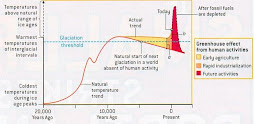The December 2006 issue of Harvard Business Review published an interesting article entitled “Extreme Jobs: The Dangerous Allure of the 70-Hour Work Week” written by by Sylvia Ann Hewlett and Carolyn Buck Luce from the Center for Work-Life Policy (http://www.worklifepolicy.org/). The study showed that 45% of managerial workers in large corporations have “extreme jobs” - they work an average 73 hours a week and deal with additional performance pressures that range from 24/7 client demands to grueling travel schedules. Workloads are not only heavy - they’re unrelenting. Vacation has become stigmatized - in many corporations contenders for the big bucks or the corner office don’t feel they can take time off. The survey data show that almost half of all extreme workers take fewer than ten days vacation a year. Nearly 60% don’t take what they are entitled to.
Despite these stresses and strains, jobs at the cutting edge of today’s knowledge economy are powerfully alluring. In the words of one BP executive: “I love my job. Riding this wave of expansion in Asia - being part of the reason a country takes off - is enormously exciting.” A Deutsche Bank executive is even more graphic “My work gives me this adrenalin rush. Like a drug, it’s irresistible and addictive”. The data show that fully 76% of extreme workers love their jobs. Very few feel exploited or put upon by a big boss. Rather, a majority (67%) see the pressures of their jobs as “self-inflicted.” Freely chosen or not, these pressures exert a heavy toll - wreaking havoc in lives and undermining health and well-being of both the organisation and the individual.
Close to 50% of extreme workers are so depleted and drained that when they get home at night they’re speechless - incapable of conversation. Besides relationship the impact on health is serious. The research details links between extreme jobs and chronic insomnia, weight gain, infertility, and heart problems. The connection between vacation (or lack thereof) and heart attacks is particularly eye-catching. Researchers at SUNY Oswego and the University of Pittsburgh have found that among male employees, taking an annual vacation cuts the risk of a fatal heart attack by 32%. Among female employees this figure rises to 50%. Taking time out isn’t just a piece of self-indulgence. It’s a life saver. Moreover, the workplace is becoming the centre of many people’s social life, at the expense of the home. With the rise of knowledge-based work, people increasingly like their jobs and their colleagues’ company.
What is the definition of “extreme jobs”? According to the study, a job is considered to be “extreme” when it takes 60 or more hours per week, is highly paid and entails at least five of the following characteristics:
- Unpredictable flow of work
- Fast-paced work under tight deadlines
- Inordinate scope of responsibility that amounts to more than one job
- Work-related events outside regular work hours
- 24/7 availability to clients
- Responsibility for profit and loss
- Responsibility for mentoring and recruiting
- Large amount of travel
- Large number of direct reports
- Physical presence at workplace at least ten hours a day.
The surge of extreme jobs is explained by three major factors. First, competition has become more intense. The immense wave of mergers, the flattening of hierarchies and the fear of losing jobs due to outsourcing greatly contributed to this phenomenon. The enormous amount of money earned by top professionals and managers these days is obviously a powerful incentive to work more than the rivals. This could rapidly turn into a vicious circle because numbers show that the higher the pay and position, the bigger the workload. Second, technological developments seem to have liberated and shackled professionals at the same time. 72% of the Americans who answered a survey declared technology helps them do their jobs well but 59% said it lengthens their working day, while 64% think it invades their family life. Finally, cultural shifts are also responsible for the spread of extreme jobs. Extreme efforts are well appreciated in our society. In extreme sports, the more demanding and daring athlete gets more public’s admiration. Intense jobs, like extreme sports, are seen as desirable and not exploitative at all.
But extreme jobs also imply cost increases. It may be that companies can take advantage of extreme workers in the short term. But in the long run, burn-outs, promotion refusals and health costs might prove expensive for firms. 69% of the study’s respondents believe they would be healthier if they worked less and 65% would refuse a promotion if it meant more workload. Bad relationships with spouse and children, an unsatisfied sex life and incapacity to properly maintain their homes are other problems encountered by extreme workers. Recruiting and retaining women talent seem to be most affected in “extreme jobs” condition.
Corporations, worried about “burnout” and high turnover rates, are getting into the business of taming extreme jobs. The new programs range from nap breaks (Nike), to creating half a day a week that’s “communication free” (Intel), to an internal consulting pool that offers valued employees a reduced hour schedule for a period of two years (Amex). The logic behind these new initiatives is two-fold. Providing respite from hellish hours reduces “flight risk” among key talent, while reducing information and work overload promotes creativity and innovation.





















No comments:
Post a Comment